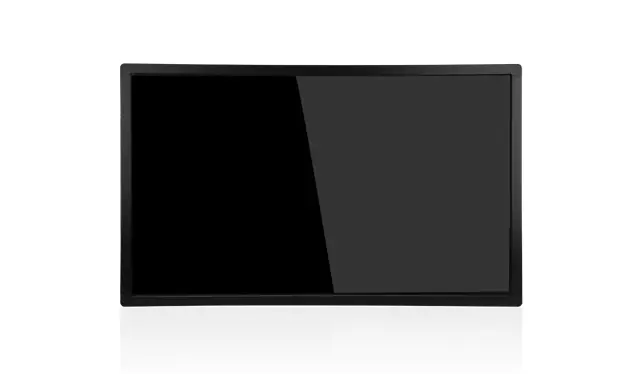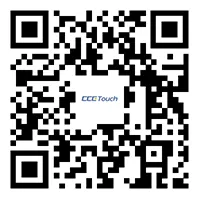How to Choose the Right Touch Screen Whiteboard
2025-08-27
Choosing the perfect touch screen white board can significantly enhance collaboration, productivity, and engagement in modern workplaces and educational environments. With a variety of options available in the market, it’s essential to understand key features, technical specifications, and practical considerations to make an informed decision. This guide provides a detailed overview of critical factors—including display technology, software compatibility, connectivity, and installation requirements—to help you select the ideal interactive whiteboard for your needs. We’ll also explore product parameters through structured lists and comparison tables, ensuring you have all the information necessary to evaluate performance, usability, and value.
Understanding Touch Screen Whiteboard Technology
A Touch Screen Whiteboard is an interactive display that allows users to write, draw, and manipulate content directly on the surface using fingers or styluses. These devices are widely used in conference rooms, classrooms, and training centers to facilitate dynamic presentations and collaborative sessions. Modern touch whiteboards employ different technologies, such as infrared, capacitive, or optical sensing, each with distinct advantages in accuracy, responsiveness, and multi-touch capabilities.
When selecting a Touch Screen Whiteboard, it’s important to consider the primary use case. For example, educational institutions may prioritize durability and multi-user support, while corporate settings might focus on integration with existing software and high-resolution displays. Below, we break down the essential parameters to evaluate.
Key Parameters for Selecting a Touch Screen Whiteboard
1. Display Specifications
The visual quality of the display is crucial for readability and user experience. Key aspects include:
-
Screen Size: Common sizes range from 55 inches to 86 inches. Larger screens are suitable for bigger rooms.
-
Resolution: Full HD (1920x1080) or 4K Ultra HD (3840x2160) ensures sharp text and graphics.
-
Panel Technology: IPS panels offer wider viewing angles and better color consistency compared to TN panels.
-
Brightness: Measured in nits, higher brightness (e.g., 350 nits or more) reduces glare in well-lit environments.
2. Touch Technology and Responsiveness
The type of touch technology affects accuracy and functionality:
-
Infrared Touch: Supports multi-touch and is durable, but may have lower accuracy near edges.
-
Capacitive Touch: Offers high precision and smooth interaction, similar to smartphones.
-
Optical Touch: Cost-effective and scalable for larger sizes, though may require recalibration.
3. Software and Compatibility
Ensure the Touch Screen Whiteboard works seamlessly with your preferred applications:
-
Operating System: Some models support Android, Windows, or iOS natively.
-
Pre-installed Software: Look for built-in annotation, whiteboarding, and screen-sharing tools.
-
Third-party Integration: Compatibility with video conferencing apps (e.g., Zoom, Microsoft Teams) and cloud services (e.g., Google Drive, OneDrive).
4. Connectivity Options
Diverse ports and wireless capabilities enhance flexibility:
-
HDMI/USB-C: For connecting laptops and other devices.
-
Wireless Screen Sharing: Via Miracast, AirPlay, or proprietary apps.
-
Network Connectivity: Ethernet or Wi-Fi for updates and remote management.
5. Durability and Design
Build quality impacts longevity and safety:
-
Frame Material: Aluminum or reinforced steel provides sturdiness.
-
Surface Hardness: Tempered glass resists scratches and impacts.
-
Mounting Options: Fixed wall mount, mobile stand, or adjustable brackets.
6. Additional Features
-
Speakers and Microphones: Built-in audio supports video calls and multimedia.
-
Multi-user Support: Allows several users to interact simultaneously.
-
Pen and Eraser Tools: Included accessories for precise input.
Comparison of Touch Screen Whiteboard Models
To help you visualize differences between options, here’s a table summarizing typical specifications across product tiers:
| Feature | Basic Model | Standard Model | Premium Model |
|---|---|---|---|
| Screen Size | 55-65 inches | 70-75 inches | 80-86 inches |
| Resolution | Full HD (1080p) | 4K UHD (2160p) | 4K UHD with HDR |
| Touch Technology | Infrared | Capacitive | Projected Capacitive |
| Touch Points | 10-20 points | 20-32 points | Up to 40 points |
| Operating System | Android 9.0 | Android 11 / Windows | Dual OS (Android/Windows) |
| Connectivity | HDMI, USB, Wi-Fi | HDMI, USB-C, Bluetooth | USB-C, Wi-Fi 6, Ethernet |
| Built-in Audio | 2x10W speakers | 2x15W speakers + mic | 4x20W speakers + array mic |
| Warranty | 1-2 years | 3 years | 5 years |
Practical Tips for Making the Right Choice
-
Assess Your Space: Measure the room dimensions and viewing distance to determine the appropriate screen size.
-
Define Use Cases: Identify whether the board will be used for teaching, presentations, or collaborative design—this affects needed features like multi-touch or software integration.
-
Test usability: If possible, request a demo to evaluate touch responsiveness, pen accuracy, and software intuitiveness.
-
Consider Total Cost: Look beyond the initial price—factor in installation, accessories, and potential subscription fees for software services.
-
Check Support Services: Ensure the vendor offers reliable technical support, training resources, and warranty coverage.
Why Choose CCE Technology Touch Screen Whiteboards?
At CCE Technology, we combine innovative engineering with user-centric design to deliver Touch Screen Whiteboards that excel in performance and reliability. Our products feature:
-
High-precision touch sensors with ultra-low latency.
-
Customizable software suites for education and business.
-
Robust construction with anti-glare and anti-smudge coatings.
-
Comprehensive customer support, including on-site installation assistance.
We invite you to experience the difference a CCE Technology Touch Screen Whiteboard can make in your organization. Reach out to our sales team at sales@ccetouch.com for personalized recommendations, bulk pricing, or to arrange a live demonstration. Let’s transform the way you collaborate and create together!





